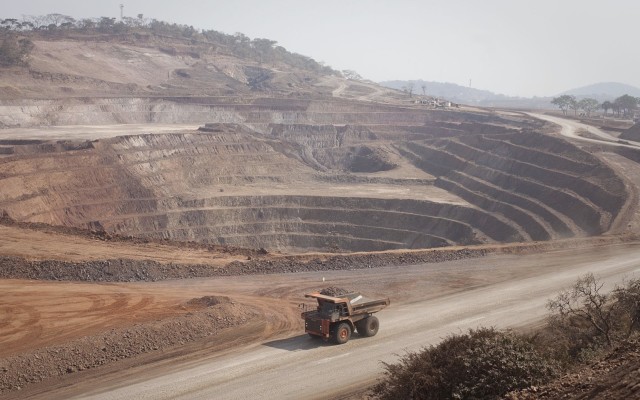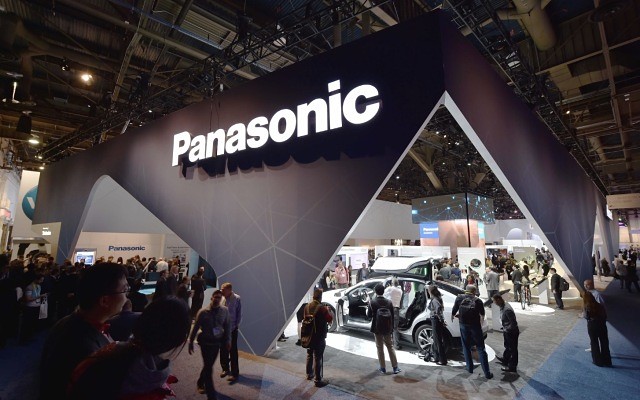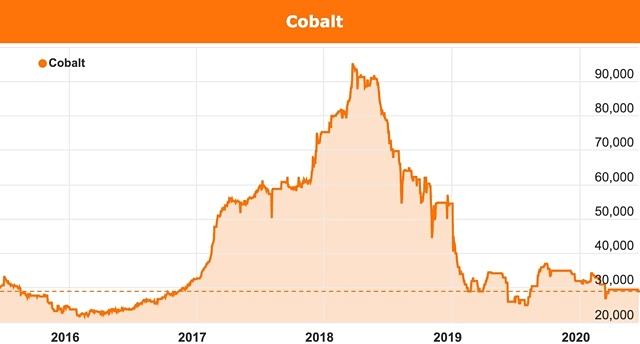Tesla secures Glencore cobalt supply deal, extends Panasonic battery partnership

Glencore will supply cobalt to Tesla’s recently built Gigafactory in Shanghai and one soon to be built in Berlin.
One of the world’s most prominent electric vehicle (EV) manufacturers, Tesla, and Swiss commodities giant Glencore have agreed to a large-scale cobalt supply deal that could see Tesla sourcing as many as 6,000 tonnes of the metal annually from Glencore.
In parallel to the newly signed agreement with Glencore, Tesla said it also extended its relationship with current battery partner Panasonic to 2030, locking in prices until 2023 in the process.
The supply deal with Glencore puts into question previous statements that Tesla was seeking to reduce its reliance on cobalt.
Considering the company’s intention of securing future supplies, it seems cobalt will remain critical to the developing EV battery industry.
In February 2020, Glencore penned a supply contract with Samsung to provide up to 21,000t of cobalt hydroxide between 2020 and 2024.
In addition to Samsung (and now Tesla), Glencore has also inked supply deals with Korean battery manufacturer SK Innovation, Belgian chemicals giant Umicore, Chinese battery recycler GEM and German carmaker BMW.
The Glencore contract is expected to help Tesla secure long-term cobalt supplies at amiable rates as the company continues to up-scale operations and builds more gigafactories.
Tesla is hopeful that a deal with Glencore will provide long-term supply chain assurance, reduce average costs, and, possibly most valuable – generate a positive public relations angle given that around 60% of the world’s cobalt is currently sourced from the Democratic Republic of Congo.
The DRC is alleged to be concealing horrific human rights abuses including genocide and slave labour, which critics say, are fuelled by rampant demand for valuable commodities such as lithium and cobalt.

Tesla is set to secure long-term cobalt supply courtesy of a 6,000tpa offtake contract with Glencore.
Following the lead of other tech companies such as Apple and Panasonic, Tesla published an “impact report” into its existing business practises and raw material supply sources, saying that it had made a “significant effort” to reduce the chance of purchasing raw materials obtained via slave labour.
According to Tesla, it will deploy its bolstered cobalt supply at its recently opened Shanghai gigafactory, in addition to a further factory planned to be built in Germany.
Analyst estimates suggest that Tesla’s Chinese gigafactory will produce 3,000 cars per week once fully operational – an output level that would require Tesla to offtake at least 1,200t of cobalt per year.
In Germany, Tesla intends to produce 500,000 cars per year once at full capacity.
Most of Tesla’s production is done in Nevada, at its ancestral home where the company opened its first gigafactory in 2016.
In March this year, Tesla said it produced its 1 millionth electric car with its Model 3 ranking as the world’s “all-time best-selling plug-in electric car”, with more than 500,000 sold to date.
Battery blues
Since being founded in 2003, Tesla has quickly advanced and expanded to become one of the world’s leading EV manufacturers.
However, EVs need lithium-ion batteries which has been a problematic issue for Tesla, given that the company does not manufacture its own batteries and is forced to rely on third-party vendors.
To build the circa 400,000 cars it sells globally every year, Tesla sources batteries from Japanese giant Panasonic.
According to a regulatory filing, Tesla’s amended deal with Panasonic – referred to as “2020 GTC” – is set to expire in 2030 and is dependent on Panasonic achieving manufacturing milestones.

Tesla and Panasonic have agreed to a new three-year deal.
The terms of the deal also stipulate pricing arrangements until 2023 for Panasonic’s 2170 cells made in Nevada, assuring a production volume from Panasonic and a purchase volume commitment from Tesla.
Despite having a long-term agreement for battery supply courtesy of Panasonic, Tesla may yet commit to going the extra mile and taking the entire EV supply chain in-house.
Tesla boost
Currently, Tesla is the world’s best-selling EV manufacturer, selling almost 250,000 cars in 2018 and almost 370,000 cars in 2019. The company retains a market share of 17% of the plug-in and 23% of the battery-electric segment respectively.
A supply deal with Glencore could be advantageous for both parties considering that Tesla is seeking to raise the number of cars it manufactures while Glencore is keen to lock-in offtake agreements to guarantee future sales.
Both cobalt and lithium prices – the two pivotal metals behind the EV revolution – have ebbed and lost their allure over the past two years following several spikes on the back of growing adoption of EVs.
Cobalt prices have shed 50% over the past three years while lithium prices have plunged 71%.

There is ample cobalt supply currently due to a hoard of new exploration activity over the past five years.
However, demand is expected to rise over the next decade, fuelled by consumers shifting towards EVs.
Tesla is planning to expand its operations in prime markets such as China with plenty of competition in the form of China’s BYD and Germany’s power brands such as VW and BMW, also seeking to capitalise on the growth in EVs.
Warnings about long-term shortages caused cobalt prices to spike in 2017 and 2018, prompting Tesla to forewarn that over-reliance on the metal would be a risk to its future expansion plans.
As a result, both for operational and reputational reasons, Tesla is seeking to secure long-term cobalt supply. Doing so now, when prices are depressed, could also prove to be a masterstroke through the clarity of hindsight in the years to come.
The timing of the deal could mean that Tesla is seeking to take advantage of the current commodity price slump, or, that the EV maker is laying the foundations to obtain complete independence from external battery suppliers by eventually bringing battery cell production in-house.
The latter rationale could prove to be most accurate, given that last year, Tesla agreed a US$218 million (A$316 million) deal to buy Maxwell, a supercapacitor manufacturer with proprietary battery cell technology.
Possibly as a sarcastic exaggeration that highlights his imperious eccentricity, Elon Musk quipped that as Tesla “scales battery production to very high levels, we have to look further down the supply chain and we might get into the mining business”, at the company’s annual meeting last year.
Whether or not Tesla does, in fact, delve into cobalt mining remains to be seen, but for the time being, the EV maker is busy stockpiling the required materials for a turbo-charged EV production push in the years to come.
